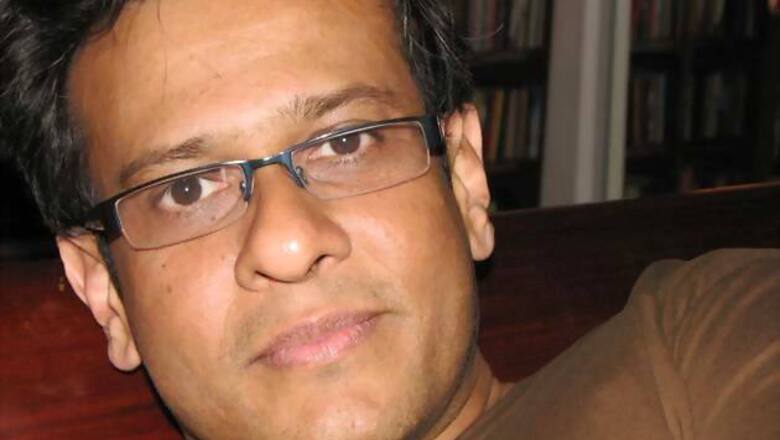
views
New Delhi: Bedabrata Pain was a scientist who one day decided to tell the story of a 14 year old boy Jhunku. The former NASA employee wrote 36 drafts of his film 'Chittagong' before taking the first shot. He talks to IBNLive about the rigorous process of filmmaking.
Q: Why is the 'Chittagong' uprising so special for you?
A: I don't know how many people know about it but I have found that the most of us are unaware about such an inspiring even that happened some 82 years ago. For the first time, local people kicked the British forces out of a town. The notion of 'Britishers are invincible' was challenged.
Q: 'Chittagong' is the story of a kid.
A: 'Chittagong' is the story about a 14 year old kid Subodh Roy or Jhunku Roy who took part in the movement. He is a studious boy; he comes first in the class, and is bound for Oxford. He doesn't even play football, let alone pick up a gun. He achieves victory despite his self doubts.
Q: What inspired you to make a film on 'Chittagong' uprising?
A: I was talking to my partner about which movie to make, then I mentioned the name of Pritilata Waddedar who I believe was the first Indian woman martyr of the 21st century. My partner didn't know about her despite being a History major from a well known university so that showed me how this history is ignored by modern India. Then she took the lead and started researching. I had the advantage of reading Bengali fluently so I managed to read writings by various participants of Jalalabad battle like Suresh De. We did all kinds of homework, but my biggest problem was how do we place the film? Master Da's character is inspiring as it is, everybody in Bengal knows about Master Da, but storytelling wise it was difficult because he was already there. In any story, you have to have the growth of the character so we were searching for our protagonist and we found our hero in Jhunku.
Q: Was it a conscious decision to not present Master Da as the protagonist?
A: What a journey of this guy, from being a studious boy to a gun wielding revolutionary, constantly doubting himself whether he has done a right thing or not until he achieves an amazing triumph which is sometimes not even recognised because Chittagong uprising in my opinion didn't even end in 1934. Many history books depict the Chittagong uprising as finished when Master Da gets killed but 90% of the people who took part in Chittagong struggle actually survived and participated in many more struggles.
Q: Manoj Bajpayee is playing Master Da in 'Chittagong'.
A: Master Da's character was one of the most difficult characters to portray. Today's world has become very cynical and most stories show cynical people. People who are inspiring, who think that the world can be changed. Master Da was one such character. He dared to dream that the mighty British Empire can be defeated militarily. It required a great faith in the future. That inspiration is missing from today's life. And there was no other actor better than Manoj to play the role with conviction.
Q: Ashutosh Gowariker's 'Khelein Hum Jee Jaan Sey' was also based on the same event.
A: Backdrop is of course the same. I am also taking about the events of the same period, but my film is different because it's the point of view of a 14 year old boy. I started working on the film long before Ashutosh started his film. I prepared 36 drafts before taking the first shot. Not only the protagonists are different but the treatment is also different. Perhaps where 'Khelein Hum Jee Jaan Sey' ends, my film reaches only half way.
Q: What makes ‘Chittagong’ different than other Bollywood period films?
A: See, In India, most of the historical films end in a defeat. Take 'Mangal Pandey-The Rising' or 'The Legend of Bhagat Singh' for example. I loved Rajkumar Santoshi's film, but you get the sense of defeat when Bhagat Singh gets hanged. So, I wanted my film to leave the audience with a sense of victory. This is what we need today.
Q: How did you convince Barry John to act in your film?
A: Well, I had a fantastic casting director Honey Trehan, he was instrumental in getting Barry John and Manoj Bajpayee. Mr Wilkinson, the role played by Barry John is not a stick figure role, it is very complex. Most of the foreign administrators go to another country with an open heart thinking that they will bring civilization there but they find the situation different.
'Chittagong' is very topical; it will remind you of what's happening today. It's a celebration of present not history.
Q: The transition from an IIT student to a filmmaker is interesting.
A: (Laughs) I was in IIT Kharagpur, and was one of those 'good students'. Later I went to Columbia University for my Ph.D. Then we (four friends) invented the basic digital camera technique that is used in mobiles today. Later I worked for NASA also.
Q: Other projects in the pipeline.
A: I am working on three projects. Though I am not getting much time to work on those films due to 'Chittagong' but I am working on a love story set in a political backdrop. The other film I am working on is a historical film that can remind you of 'Schindler's List' and it's a Hollywood project.
####Bedabrata Pain, the director of ’Chittagong’, talks about his film and the rigorous process of filmmaking.


















Comments
0 comment